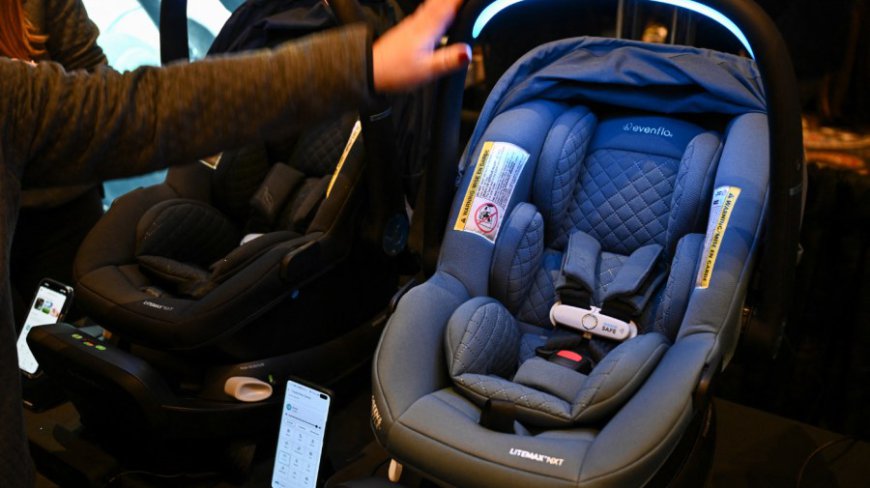The US can have tariffs on baby safety products or a baby boom, but not both
A permanent exemption for baby products would eliminate that uncertainty, and protect families from sudden price shocks.

President Trump has voiced a desire to ignite a new “baby boom” in America, floating a $5,000 baby bonus and other policies aimed at spurring family formation. But the administration’s tariff policies are now undercutting that vision — even in the wake of a U.S.–China trade deal that brings some clarity to parents and industry, but not nearly enough relief.
The recently finalized trade framework sets a nominal 55 percent tariff on most Chinese imports, including baby and child safety products, down from the 126.5 percent peak earlier this spring. That’s a welcome improvement, but it is still more than double the rate from before the trade war began.
For essential products such as cribs, car seats, strollers and safe sleep spaces, that’s a huge added cost; one that shows no signs of going away.
These aren’t luxury goods. Many are legally required. All are foundational to the health and safety of young children. Yet the White House has confirmed it will maintain the 55 percent rate, with no exemptions currently planned for baby products and no clear timetable for further relief.
This leaves families facing steep prices and mounting uncertainty, just as the administration is trying to encourage more Americans to have children.
The good news is, the White House can fix this without derailing its deal with China. All it needs to do is exempt from the tariffs all products essential to the care and protection of babies and children.
The first Trump administration exempted these products in 2018, and the current administration floated doing so again a few months ago. But now the pause seems to have put such an exemption on the backburner. That’s a mistake.
Baby and childcare products are uniquely vulnerable to tariff pressure: More than 90 percent are imported from Asia, with the overwhelming majority manufactured in China. Even with the new framework in place, U.S. importers remain hesitant. They don’t know if the deal will hold, and they don’t want to ramp up orders only to see tariffs spike again.
A permanent exemption for baby products would eliminate that uncertainty, and protect families from sudden price shocks.
Otherwise, the severe price increases we have seen are likely to continue. Before the new deal, strollers had risen in price by anywhere from $150 to $450. A popular UPPABaby car seat has increased in price by more than 40 percent, despite efforts to absorb cost.
The vast majority of brands and products are facing similar increases. We anticipate an average overall price increase of around 30 percent across critical baby and child products.
Beyond the price crisis is a looming product shortage. Manufacturers who slowed production during the tariff surge are now in limbo. Retailers are stockpiling inventory where they can. As one told us, “If I could fill a warehouse with car seats and strollers right now, I would.”
Without relief, families will be forced into painful — and risky — choices.
Picture a single mother whose car seat is damaged in a minor crash. She is legally required to replace it, but she either can’t afford a new one or can’t find one in stock. She considers buying a used or counterfeit seat of questionable safety or continuing to use the damaged one.
Parents should not be forced to gamble with their children's safety.
Although the administration’s goal of reducing America’s reliance on foreign manufacturing is understandable, the realities of this sector require a different approach. Baby and child safety products are highly regulated and built through decades-long partnerships with specialized factories abroad.
These supply chains can’t be replicated domestically overnight, nor can most families afford the price increases that would come with reshoring.
A 2021 Pew survey found that cost was the most commonly cited reason non-parents were unlikely to have children, and those costs have increased steadily since. A 2022 report from the Brookings Institution found that inflation had added more than $26,000 to the cost of raising a child, hitting low-income families hardest and pushing many to delay or scale back their plans for children altogether.
Tariffs shouldn’t make that burden worse. A broad exemption for all essential baby and child products would provide certainty regardless of how the broader China deal unfolds. It would support struggling families, stabilize the industry and bolster the administration’s pro-family goals.
Without the exemption, the consequences won’t be measured in dollars alone, but also in risks no parent should have to take.
Lisa Trofe is executive director of the Baby Safety Alliance, previously the Juvenile Products Manufacturers Association.
What's Your Reaction?
























